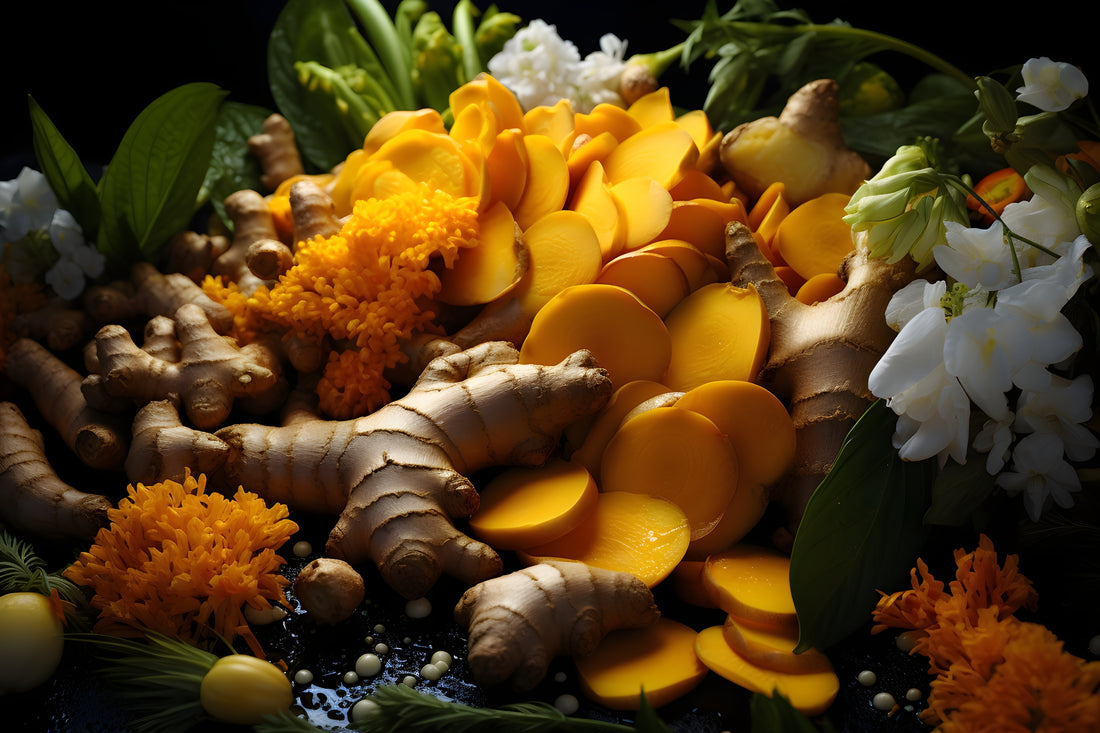Are you looking for ways to improve your overall health and reduce inflammation in your body? One effective approach is to incorporate anti-inflammatory foods into your diet. Chronic inflammation has been linked to various health issues, including heart disease, arthritis, and obesity. By making simple changes to your eating habits, you can promote a healthier lifestyle and potentially prevent these conditions. Let's explore some key tips for incorporating anti-inflammatory foods into your daily meals.
What are Anti-Inflammatory Foods?
Anti-inflammatory foods are those that have been shown to reduce inflammation in the body. They are typically rich in antioxidants, vitamins, minerals, and other essential nutrients. Some examples of anti-inflammatory foods include:

Fatty Fish: Fatty fish like salmon, mackerel, sardines, and trout are rich in omega-3 fatty acids, which have powerful anti-inflammatory properties. Omega-3s can help reduce inflammation in the body.


 Turmeric: Turmeric contains an active compound called curcumin, which has potent anti-inflammatory and antioxidant effects. It's often used in curries and can be consumed as a supplement.
Turmeric: Turmeric contains an active compound called curcumin, which has potent anti-inflammatory and antioxidant effects. It's often used in curries and can be consumed as a supplement.

Extra Virgin Olive Oil: Extra virgin olive oil is rich in monounsaturated fats and contains oleocanthal, an antioxidant that has anti-inflammatory properties. Use it as a cooking oil or drizzle it over salads.

Nuts: Almonds, walnuts, and other nuts are high in healthy fats, fiber, and antioxidants. They can help reduce inflammation when consumed in moderation.

Ginger: Ginger contains gingerol, a bioactive compound with anti-inflammatory and antioxidant effects. It's often used in cooking, tea, or as a supplement.
Whole Grains: Choose whole grains like brown rice, quinoa, oats, and whole wheat over refined grains. Whole grains are high in fiber and nutrients, which can help lower inflammation.
Legumes: Include beans, lentils, and chickpeas in your meals. They are a good source of plant-based protein and fiber, which support gut health and reduce inflammation.
Herbs and Spices: Use herbs and spices like turmeric, ginger, garlic, and cinnamon, which have anti-inflammatory properties. Turmeric, in particular, contains curcumin, a potent anti-inflammatory compound.
Lean Proteins: Opt for lean protein sources like poultry, lean cuts of meat, tofu, and tempeh. These provide essential amino acids without the added saturated fats found in fatty cuts of meat.
Dairy Alternatives: If you're sensitive to dairy or want to reduce dairy consumption, choose dairy alternatives like almond milk, coconut yogurt, or soy-based products.
Nuts and Seeds: Include a variety of nuts and seeds like almonds, walnuts, flaxseeds, and chia seeds in your diet. They are rich in healthy fats, fiber, and antioxidants.
Limit Added Sugars: Minimize or eliminate sugary drinks, processed snacks, and desserts from your diet. Added sugars can promote inflammation.
Red Meat: Limit your intake of red meat, especially processed meats like sausages and bacon. These meats are high in saturated fats and can promote inflammation when consumed excessively.
Alcohol: Consume alcohol in moderation, if at all. Excessive alcohol intake can contribute to inflammation.
Hydration: Stay hydrated by drinking plenty of water and/or herbal or fruit tees throughout the day. Proper hydration supports overall health and can help reduce inflammation.
Portion Control: Be mindful of portion sizes to avoid overeating, which can contribute to weight gain and inflammation.
Simple Ways to Incorporate Anti-Inflammatory Foods
Now that you know some examples of anti-inflammatory foods, let's discuss how you can easily incorporate them into your daily diet:
- Start your day with a nutritious breakfast by adding berries to your cereal or oatmeal.
- Include leafy greens in your salads, sandwiches, or smoothies for a boost of antioxidants.
- Swap out unhealthy cooking oils with extra virgin olive oil when preparing your meals.
- Make fatty fish a regular part of your diet by enjoying it grilled, baked, or in sushi.
- Spice up your dishes with turmeric to not only add flavor but also benefit from its anti-inflammatory properties.
The Benefits of Anti-Inflammatory Foods
Incorporating anti-inflammatory foods into your diet can have numerous benefits for your health. By reducing inflammation in your body, you may experience:
- Improved heart health and reduced risk of heart disease.
- Relief from arthritis symptoms, such as joint pain and stiffness.
- Weight management and potential prevention of obesity.
- Enhanced immune function and reduced risk of chronic diseases.
Remember, consistency is key when it comes to reaping the benefits of anti-inflammatory foods. Aim to make these dietary changes a long-term habit rather than a short-term fix.
It's important to remember that while these foods can help reduce inflammation, they should be part of a balanced and diverse diet. Reducing or avoiding pro-inflammatory foods like processed foods, sugary beverages, and trans fats is also crucial for managing inflammation.
Additionally, consulting with a healthcare professional or registered dietitian can provide personalized guidance on managing inflammation and making dietary choices that are suitable for your specific needs and health conditions.
